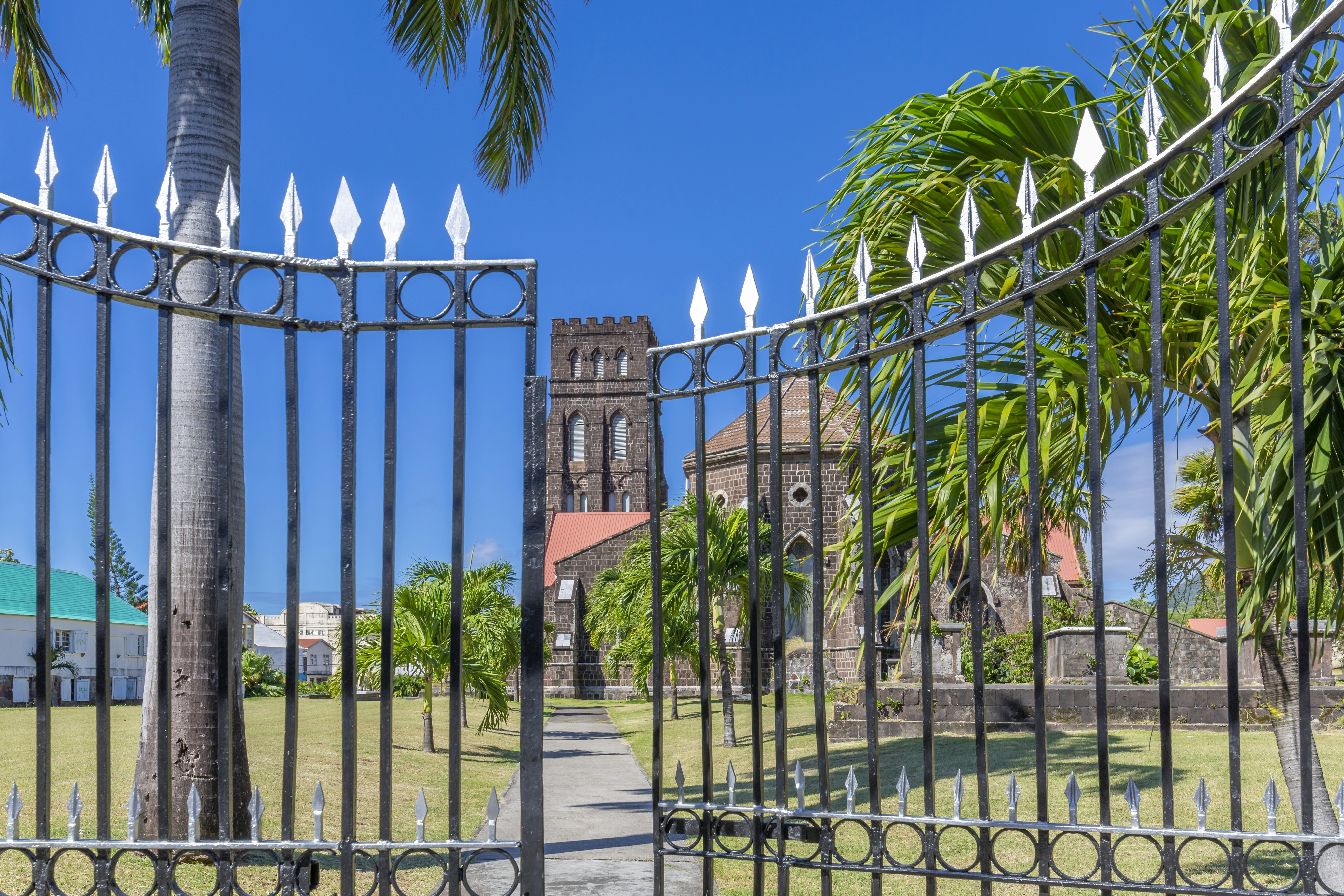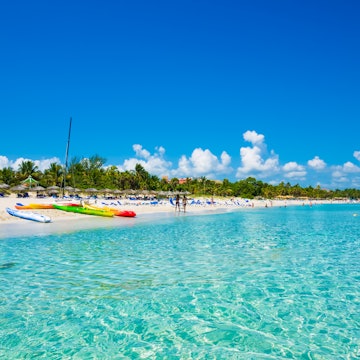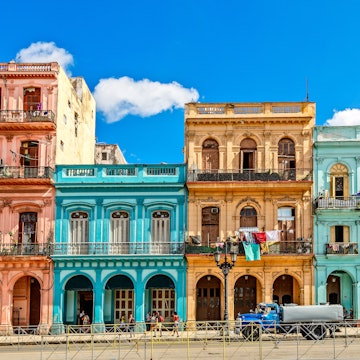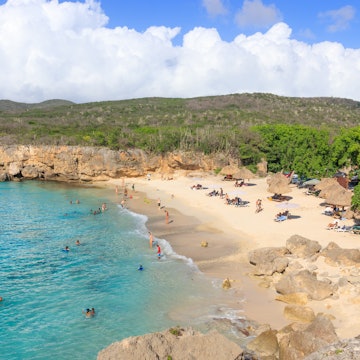
Would you visit these gorgeous Caribbean islands where swearing is illegal?

Feb 29, 2020 • 5 min read

The beaches aren't the only thing the locals expect you to keep clean. NAPA74 / Getty Images
The dual-island nation of St Kitts and Nevis makes for an undeniably gorgeous and mellow Caribbean getaway. As with visits to any foreign country, travelers should be respectful and mind their Ps and Qs, but here, among the lush landscape and beautiful beaches, you’ll need to be extra careful. Public profanity is an enforceable offense on these islands — and not even being famous can get you off the hook.
It’s hard to imagine such a strict law in such a laid-back place, but the no-swearing law in St Kitts and Nevis is no joke. On a winding drive from the airport to the ferry port in St. Kitts, a local driver warns that there are only two things you must never do here. “Never wear army camouflage (it’s reserved for the military only),” he says. “And do not curse in public.”
It may seem like one of those archaic laws that’s rarely or never enforced, but make no mistake: in these parts, crass public profanity is 100% against the law. If you do curse and get caught, it could land you a hefty fine — or even jail time. So, why so serious about swearing? Our driver claims the law stems from the country’s overtly religious and conservative culture — something that can be traced back hundreds of years to the islands’ colonization period.

A brief history of St Kitts and Nevis
In 1493, Christopher Colombus became the first European to set eyes on St Kitts after passing by the small island on his second journey to the New World. At this time, St Kitts was inhabited by the indigenous Carib people who called it Liamuiga, meaning ‘fertile land’. When the British and French colonized the islands 130 years later, they wiped out most of the Carib people by massacre and brought enslaved Africans to work on sugar plantations (many of these plantations have now been repurposed as hotels). The enslaved people were indoctrinated with Christianity as their new religion.
The modern locals of St Kitts and Nevis are descendants of these enslaved people, and Christianity has persevered as the dominant religion on both islands.

How long has it been illegal to swear in St Kitts and Nevis?
According to Inspector James Stephen of the Nevis Police Department, the public swearing law “has been on the books since 1961”, though there have been a few amendments. Currently, the law states that any person who “makes use of any abusive, blasphemous, indecent, insulting, profane or threatening language in any public place, in any place to the annoyance of the public, or tending to be a breach of the peace” is breaking the law and can be held liable.
The exact wording of the law is vague enough to technically cover any type of verbal disturbance, curse word–inclusive or not. In truth, it’s all up to the officer when they catch someone with loose lips, though the offender will have a harder time talking themselves out of trouble if they’ve been caught uttering profanity.
What words are going to land me in jail?
Ask around town and you’re likely to get different answers on what words are taboo and which words you might be able to get away with. Some locals will say that basic cuss words like hell (unless it’s talking about actual hell) and damn are damning enough, while others swear you’ll have to at least shout 'ass' or 'shit' before it ranks as a punishable offense. Good news – according to the law, AKA Inspector Stephen, these are all okay.
Inspector Stephen goes on further to isolate common words and phrases that will definitely land someone in trouble but it’s a good rule of thumb that verboten vocabulary is anything including the f-word or c-word.
What’s the punishment for swearing?
It’s worth noting that the law only applies to public swearing. It has to disturb the peace to ruffle any feathers and incur punishment. At this point, the best-case scenario is a fine of $500 Caribbean Dollars (or roughly, at the time of writing, $185 USD). The worst case scenario? The offender is arrested and imprisoned for up to six months. In either case, the public potty mouth is usually required to appear in court.
Those who think the law doesn’t apply to tourists should think again. This is an equal-opportunity offense and the law applies to locals and tourists alike — ignorance is not a successful defense. If you’re a visitor, they’ll likely hold your passport so you don’t skip town.
Celebrities are no exception
In 2016, American rapper 50 Cent was arrested after a profanity-riddled performance in St Kitts, proving that even celebrities aren’t exempt from this law. 50 Cent was prevented from leaving the country until his court appearance, ended up paying $1100 in fines, and was released on bail. (Even so, he says he would go back, if the islands would have him.) In 2003, rapper DMX was also fined for public profanity during his concert in St Kitts.
Don’t let the foul language laws deter any travel plans; both islands are relaxed, friendly, and great alternatives to some of the Caribbean’s more over-touristed islands. While you’re here, zipline through the rainforest, hike up a volcano, soak in natural hot springs, or watch the white-crested waves brush up against the beach as you soak up some warm Caribbean sun.
Inspector Stephen’s advice for anyone who wants to make sure they don’t get in trouble? Simply abide by their laws. It’s that damn easy.
You may also like:
Cruise to the best rum tours in the Caribbean
The many benefits of taking a healing holiday
What are the most welcoming destinations according to black women travelling solo?






















